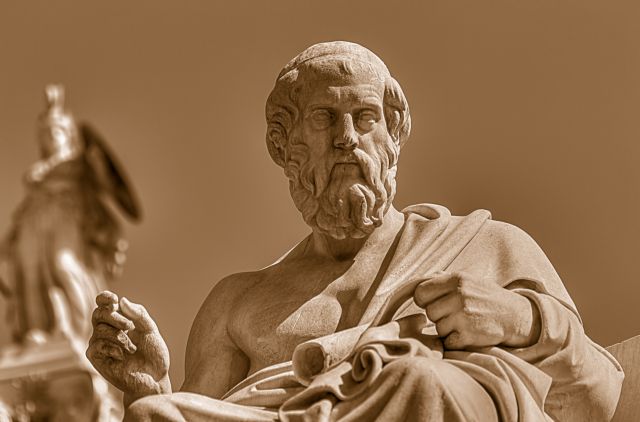
Classical studies: already by their name alone, the influence that we recognize that they had on education, on the sciences, on the arts, on philosophy, on politics, on the culture of the West, is directly indicated. But why are voices increasingly heard today that question the prestige of Greco-Roman antiquity? Why do professors like Dan-el Padilla Peralta of Princeton University link the study of the Greco-Roman past to building white supremacy (K, 7/13/2021)? Are classical studies at risk of such criticism, or do they themselves undermine the inclusiveness of education at the international level? And what is their future?
Those days, Academy of Athens organizes, in cooperation with the Heidelberg Academy and the Greek Language Center, the international conference “The Future of the Past: The Importance of Classical Studies Today”, the aim of which is to record the state and perspectives of classical studies. Many international scholars participate and their contributions cover topics such as the history of classical studies, how their teaching can be updated digitally, and their relationship to post-colonial studies, gender studies, etc.
The latter may seem unusual in classical studies, but they have their significance. Such as Antonios Regakos explains “K”., president of the Academy and co-organizer of the conference, the criticism linking the classics to white supremacy is legitimate and justified because it highlights dark spots in the past and present of research, especially in the US, where racism is still not insignificant. The claim, he continues, that the study and imitation of Greco-Roman antiquity legitimized slavery, colonialism, fascism, and Nazism—even the recent occupation of the Capitol—seems like an exaggeration, but it is not without truth. The demand for the abolition of practices that exclude non-white researchers from the archaeological sciences is also legitimate. “However, the notion that only non-white researchers can study and understand phenomena such as slavery in the ancient Greco-Roman world because they themselves and their brethren suffered from it is incorrect,” explains Mr. Regakos, who believes that classical research is threatened mainly by market ideology.
In the United States and in its socio-political characteristics, the neo-Hellenist Rodrik Beaton finds, in his opinion, a distorting connection between classical studies and racism, which in today’s presentation will argue that in order to better understand the fundamental influence of Greek culture on the modern Western world and resist its distortions, it is preferable to consider it not as one culture, but as a plural one, being part of the same continuous history. “The reality is this,” says Roderick Beaton to “K”.“that for every person or group that has experienced persecution, social injustice or oppression by any hegemonic power, it was the ancient Greeks who first opened the way to their liberation. This was in the Greek city-states of the 6th and 5th BC. century when the concepts of political freedom and the rule of law were forged and tested in the titanic battles against foreign tyranny that we remember today as the Persian Wars,” emphasizes the neo-Hellenist.

“One thing is absolutely important, and that is the importance of the memory that the study of the past can preserve,” says Richard Hunter.
In a lecture delivered on Wednesday by a professor of ancient Greek philology at Cambridge Richard Huntercaught up with Odysseus. The descent of the Homeric hero into the underworld to learn his future from the dead, the professor argued, could also serve as an illustration of modern study of the past. “One thing is absolutely important, and that is the importance of memory, which the study of the past can preserve. Recent events in Ukraine have shown how careful we must be to ensure that the collective memory does not disappear – it will never return.” accent on “k” Professor.
The role of technology is also important, says the Hellenist from the University of Michigan. Richard Janko, who, in his speech tomorrow, will talk about digital methods that shed light on classical antiquity. According to Richard Janko, ancient papyri were found in Herculaneum, charred by the eruption of Vesuvius, which can only be read using infrared rays. “There are papyri and medieval palimpsests that still have a lot to tell us. Many ancient books were found in Heraklion (Herculaneum), the only place where the buried ancient library was preserved. The software of computer expert Brent Sills will soon allow us to read more than 200 sealed scrolls,” says Richard Janko, also referring to the sunken ships at the bottom of the Black Sea, which, according to Xenophon, contained works of ancient writing.
“In my opinion, classical research is not in danger,” says Margalit Finkelberg, a Hellenist from Tel Aviv University, who today will explain how, despite Emperor Julian’s ban on teaching the classics to Christians, a synthesis of ancient Greek and Christian tradition has historically prevailed. “Classical studies will continue to be followed in the future,” continues the Hellenist, “because their position as the cornerstone of the Western cultural tradition—which, in turn, is an integral part of the world tradition—makes them the property of mankind. And they pose no risk of including those who were not involved in their formation, because their recruitment process constantly adapts them to the priorities of previously disadvantaged and underrepresented groups, thereby making them important to them as well.
The Future of the Past conference is taking place today at the Academy Palace and on Saturday at the Acropolis Museum.
Ashley Bailey is a talented author and journalist known for her writing on trending topics. Currently working at 247 news reel, she brings readers fresh perspectives on current issues. With her well-researched and thought-provoking articles, she captures the zeitgeist and stays ahead of the latest trends. Ashley’s writing is a must-read for anyone interested in staying up-to-date with the latest developments.